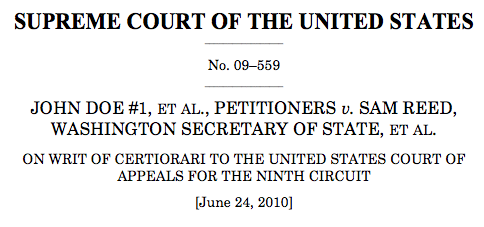How Rap Tears Up the Boring Art Vs. Commerce Argument
Last week, HBO put out a promotional video for their vampire series True Blood that featured Snoop Dogg rapping about the show’s characters. (I liked it. Not everybody did.) Now the great Port Arthur, Texas-based MC Bun B has recorded a rap over the instrumental track from Outkast’s “ATLiens” in celebration of the seventh anniversary of the Japanese clothing company Lafayette.
It is essentially an advertisement and it is also excellent-proof that rap, pretty much from its beginnings, set itself beyond the art vs. commerce argument that plagues artists in so many other forms. Remember Kurt Cobain wearing the “Corporate Magazines Still Suck” T-shirt on the cover of Rolling Stone? Hard to imagine a rapper struggling like that. Back in the mid-’90s, when the tech boom was starting to boom and Puffy was ushering in the “bling era” with Biggie and Bad Boy records, lots of people were upset about it.
I was one of them. I loved Biggie’s music, of course, but the ostentatious fashion and videos bothered me. I’d come out of college hoping that Jeru the Damaja and the Wu-Tang Clan would lead some kind of Marxist revolution on the streets of New York. I loved EPMD’s purist anthem “Crossover,” wherein Eric Sermon scolded other rappers for changing their style from jeans to suits in an effort to “To go platinum and clock mad green/AKA, a sellout, the rap definition/Get off that boy, change your mission…”
Rap was getting more and more popular and generating huge amounts of money, and artists I greatly respected were appearing in television commercials selling malt liquor or blue jeans or whatever and it made me sad. Then I remember I saw Missy Elliott rap in one of those “How Easy Is This” Gap commercials, and it really changed the way I thought about things. It was an excellent commercial, nothing if not entertaining: stylish and slick and clever and fun: just like lots of the songs I loved on the albums I loved by artists I loved. Not a lot of difference. And it made me think about what so many rappers had professed in their lyrics and image all along: they were doing this for money. Rap was art, for sure, but looking at some of the pinnacles of the form-Eric B. and Rakim’s Paid In Full, Slick Rick’s ridiculously large gold rope chains, the dollar sign Too $hort put in his name, Snoop keeping his mind on his money and his money on his mind-it was also, very clearly, as EPMD themselves had told us with the title of one of my favorite albums of all time, Strictly Business. Art and commerce both. (Come to think of it, those “Crossover” lyrics are about as awkward as Cobain’s T-shirt. EPMD stands for “Eric and Parrish Makin’ Dollars,” the duo posed with matching Mercedes for the cover of their second record, and worked the word “business” into the name of each and every album they made.)
Then Wu-Tang Clan, my ultimate rap-for-art-sake heroes, launched their own clothing line, Wu-Wear, and made a commercial for it with a song called “Wu-Wear The Garment Renaissance.” And I loved it. So that was that.
This is maybe a too-surface-level take on a bigger issue, and it can of course lead into deeper discussion of race and the socioeconomic conditions that rap came out of and art and politics, etc. (I always think of James Brown singing “You Can Have Watergate But Gimme Some Bucks and I’ll Be Straight” here.) But you’re probably already bored. And this is not to say that there is no such thing as selling out, either, or that commercialism is healthy for all art. But just that again and again, rap music seems to prove itself largely immune. And that Bun B is awesome. Check him out.
Robot Predator Sky Drones to Patrol Our Borders

Nothing to be concerned about! Just unmanned robot planes, flying along our border with Mexico, and they work great! Don’t think of them as scary robots. Think of them as puffy, blue, flying teddy bears. Or cats! Think about them as Enormous Robot Border Cats. Far less menacing.
Interpol, "Lights"
I go pretty far with the video for Interpol’s new song, “Lights,” which will be on the Brooklyn band’s self-titled fourth album, due in September. In it, sexy women wearing body paint and fetish gear enact something called a “pheromone harvesting ritual” which I’d never heard of before and which involves bathing and shaving and painful-looking medical instruments like Jeremy Irons and Jeremy Irons used in the David Cronenberg movie Dead Ringers. A viscous milky substance (pheromone juice?) is sucked through a straw and cried and drooled and vomited all over a cool black altar or piece of modernist furniture and then drips down down a drain. (Presumably into a pheromone receptacle.) Fine. Slightly disgusting. But I’m with it. But come on, does director Charlie White honestly expect me to believe that all this is taking place inside a three-horned rhinoceros beetle?! Yeah right! Those bugs are big, for sure, but as you can see, not that big.

(photo by Artour A from Flickr.)
Earthquake Moves City South
The border city of Calexico, CA, shifted “as much as 2 1/2 feet (80 cm) south and down into the ground due to the magnitude-7.2 earthquake on April 4.” Two questions: Does this mean that it is in Mexico now, and how long will it take for John McCain to demand that we wall it off?
Plastic German Pigs Say The Darndest Things
A couple in Kirkland, WA, claims that a Shrek promotional toy from McDonald’s has taught their two-year-old son Tyler to say a very bad word. (The word, which the reporter in this story can only say “appears to be a slang term for the female anatomy, followed by the word ‘pork,’” is “pussy.”) Is it actually what one of these Teutonic swines is uttering? Judge for yourself here. Depending on your perspective, this is either further evidence that McDonald’s should stop luring children with toys or yet another example of how Americans who want to get on TV simply need to go to the local news with a ridiculous story involving children and outrage. Or, perhaps, both.
Only Clarence Thomas Brave Enough To Protect Bigots from Angry Gays

Today’s Supreme Court decision in Doe v. Reed is worth knowing about, if you can bear with it. Corrections to what follow are welcome, and yes, I’ve omitted lots of the arguments in the interest of clarity. So! Last year in Washington State, the Governor signed into law a Senate bill that “ensures that under state law state-registered domestic partners are treated the same as married spouses.” Anti-gay marriage forces quickly organized to put up a ballot measure to undo it. They got 137,000 to sign the necessary petition; the secretary of state certified those signatures. And then, when the secretary of state acknowledged that he was bound by state law to release this as a public document upon request, he was sued by the anti-gay marriage creeps, on grounds that those signatures were First Amendment speech — and on the grounds that they’d be harassed for their speech. Things moved pretty fast.
A federal district judge granted an injunction to the anti-gay marriage creeps.
The state appealed to the Ninth Circuit.
The Ninth Circuit agreed the petitions should be released.
The anti-gay marriage creeps appealed to the Supreme Court.
This led into an interesting area! Is petition-signing speech? If it is, what is it saying?
In most cases, the individual’s signature will express the view that the law subject to the petition should be overturned. Even if the signer is agnostic as to the merits of the underlying law, his signature still ex- presses the political view that the question should be considered “by the whole electorate.” Meyer v. Grant, 486 U. S. 414, 421. In either case, the expression of a political view implicates a First Amendment right.
(That is from the syllabus, not the decision.) And:
According to plaintiffs, the objective of those seeking disclosure is not to prevent fraud, but to publicly identify signatories and broadcast their political views on the subject of the petition. Plaintiffs allege, for example, that several groups plan to post the petitions in searchable form on the Internet, and then encourage other citizens to seek out R-71 petition signers. That, plaintiffs argue, would subject them to threats, harassment, and reprisals.
And yet, the decision was 8 to 1 in favor of releasing the petitions. (In part because it sounds like the anti-gay marriage creeps did some bad arguing.)
But that brave “1” was Clarence Thomas.
He rejects the arguments that secret petitions should be available to the people. “We should not abandon those principles merely because Washington and its amici can point to a mere eight instances of initiative-related fraud.” A mere eight instances! You need at least 17 instances of fraudulent signatures to make the case, I guess.
THEN he calls that whole section irrelevant (he was just bringing it up for fun) and then he goes on for a while about how Washington State should make petition-signers public but do it by not making them at all public! The idea is they “could put the names and addresses of referendum signers into a similar electronic database that state employees could search without subjecting the name and address of each signer to wholesale public disclosure.” So, actually, still secret.
AND THEN. He concludes that there is a right to privacy in signing a petition for a ballot measure. He says the Court’s “conclusion rests on the premise that some referendum measures are so benign that the fact of public disclosure will not chill protected First Amendment activity.” So, to not have secret petitions is chilling to speech.
And in the end, his historical example, maddeningly, of the sorts of people who would need privacy for their First Amendment activity of signing a petition? Lady suffragettes.
Isner and Mahut Still Lobbing Balls At Each Other
John Isner and Nicolas Mahut have resumed the longest tennis match in history (apologies to those of you who think they all are). How long will today’s Guardian liveblogger suffer? The match is currently 63–62 in Isner’s favor, but you know how these things go. Update: And now you can stop paying attention to tennis: Isner beats Mahut 70–68.
'I Am Love' Rolls Out to America

Roger Ebert has weighed in on I Am Love: “It is deep, rich, human. It is not about rich and poor, but about old and new. It is about the ancient war between tradition and feeling. For this role, Tilda Swinton learned to speak Italian with a Russian accent, as Tilda Swinton would, but her performance is nothing as trivial as a feat of learning.” If you recall the rather dazzling trailer, it is pretty luscious and allusive and without a huge amount of narrative, and that is pretty much what the film is like too, only it is, unsurprisingly, much longer! I realize this film is playing in exactly eight theaters in America, which put it 32nd in movie earnings last weekend (well below Joan Rivers: A Piece of Work and Hubble 3D), but it’s rolling out to San Francisco, Chicago, DC, Seattle, Philadelphia, Dallas, Houston and others this weekend. It’s a film that gently nudges you to interpret while also encouraging you to lay back and be inundated with sensuality. Why not give it a whirl? It’s either that or Knight and Day this weekend.
London Borough Celebrates Return of Giant Knife
A fancy sword that had been stolen from council offices in London’s Borough of Bromley escaped the fate of so many knives on Knifecrime Island-being melted down and turned into stadiums-when authorities realized it was too special to be any old blade. The sword, which had been “handed in during the Met’s knife crime Operation Blunt campaign in February last year along with hundreds of other knives,” will hopefully spend the rest of its days hanging on a wall somewhere as a tribute to Britain’s love of knifery.
